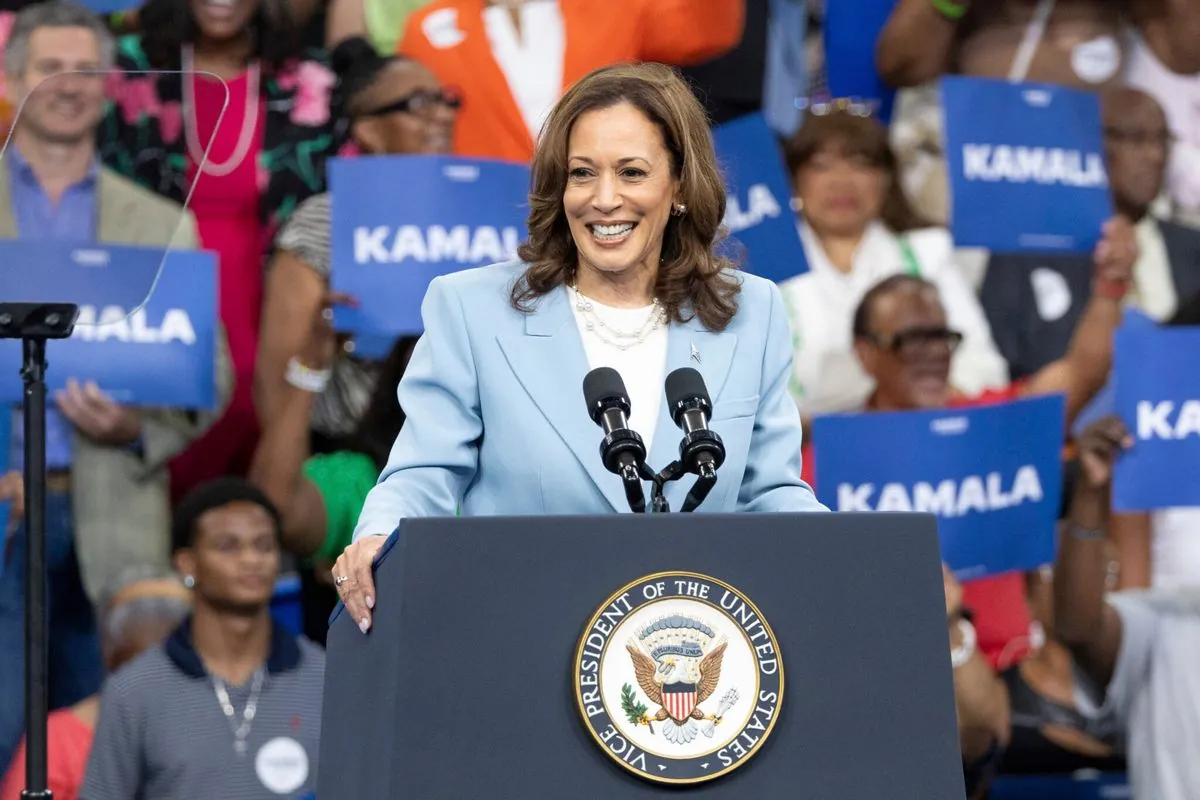Shift in Campaign Messaging as Harris Takes Democratic Nomination
Political ads reflect new focus after Biden's withdrawal. Democrats emphasize abortion and economy, while Republicans target immigration. Both parties adjust strategies for November election.

In the wake of President Joe Biden's unexpected withdrawal from the 2024 presidential race, a significant shift in campaign messaging has occurred. This change comes as Vice President Kamala Harris steps into the role of Democratic nominee, reshaping the political landscape just months before the November 5, 2024 election.
A recent analysis of political advertisements reveals a marked change in focus for both major parties. Democrats have pivoted from emphasizing Donald Trump's perceived threat to democracy to highlighting issues such as abortion rights and economic policies. This shift aligns with Harris's strengths and her record as a prosecutor and California attorney general.
"I'm running to fight for an America where the economy works for working people, where you only have to work one job to pay the bills and where hard work is rewarded. Where reproductive rights are not just protected by the Constitution of the United States, but guaranteed in every state because that's our America, and that's the America I believe in."
The Democratic Party, founded in 1828 and one of the world's oldest political parties, is leveraging Harris's unique position as the first woman, first African American, and first Asian American to serve as Vice President. This historical context adds weight to their campaign narrative.
Republicans, on the other hand, have recalibrated their message to focus heavily on immigration. They've criticized Harris's handling of the U.S.-Mexico border, a stretch of approximately 1,954 miles. It's worth noting that the term "border czar," often used in media, is not an official government position.

The issue of abortion rights has gained prominence following the Supreme Court's decision to overturn Roe v. Wade in June 2022. Several states, including battleground Arizona, have secured ballot initiatives aimed at enshrining abortion rights in their constitutions. This development underscores the growing importance of reproductive rights as a campaign issue.
Crime and public safety have also emerged as key topics in the campaign. While Republicans assert that Harris was a progressive prosecutor who was soft on crime, Democrats highlight her record in combating criminal activities. Recent FBI data shows a decrease in violent crime nationally, though the interpretation of these statistics remains a point of contention.
As the campaign intensifies, both parties are employing various strategies to sway swing voters, a term that originated in the 1960s. The use of political action committees (PACs), first created in 1944, continues to play a significant role in campaign financing and messaging.
With the first televised presidential campaign ads dating back to 1952, the current shift in advertising focus represents the latest evolution in a long history of political communication. As November 5 approaches, the effectiveness of these new messaging strategies in influencing the Electoral College, which ultimately determines the presidential winner, remains to be seen.


































